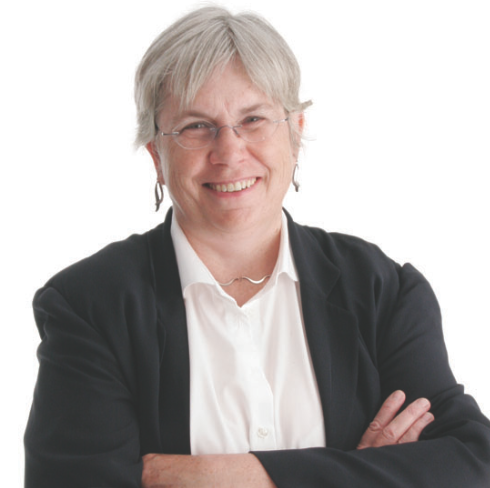Experience Worth Sharing
BU Law Clinical Associate Professor Constance A. Browne draws on her expertise in experiential learning in two chapters for a new book.
 Boston University School of Law Clinical Associate Professor Constance A. Browne always knew she wanted to combine her passion for teaching with the practice of law. Now, she’s helping more legal educators do the same, authoring two chapters for a book on experiential learning in law schools.
Boston University School of Law Clinical Associate Professor Constance A. Browne always knew she wanted to combine her passion for teaching with the practice of law. Now, she’s helping more legal educators do the same, authoring two chapters for a book on experiential learning in law schools.
Browne, who student-taught English as an undergraduate at the University of Maine in Portland, joined BU Law in 1982 as an instructor in the First-Year Writing Program. She became an associate clinical professor a few years later and, since then, has been instrumental in developing BU Law’s experiential offerings, which continue to expand. Along with Clinical Associate Professor of Law Mary C. Connaughton, she helped coach what eventually became the mock trial program, created two deposition seminars in which students learn professional responsibility through simulations and role play, and teaches in the Housing, Employment, Family & Disability Clinic and the Employment Rights Clinic.
“BU has a long history of clinical education,” Browne says. “I joined a very established group of clinicians on both the civil side, led by Professor Bob Burdick and the criminal side, led by Professor David Rossman.”
But, as Browne’s chapters for the book, Experiential Education in the Law School Curriculum, show, experiential learning isn’t just for clinics. The goal of the book is to encourage law schools to incorporate hands-on training throughout the curriculum.
At BU Law, that’s long been the reality. Experiential learning takes place in externships, semester-in-practice opportunities, and a wide range of simulation courses, including the Lawyering Program for first-year students. The program, taught by full-time faculty, features the 1L Lawyering Lab, which debuted in 2015 as part of BU Law’s strategic response to a changing legal landscape in which law students are expected to hit the ground running after graduation.
The topic of the book is timely: The ABA adopted new rules beginning with the Class of 2019 that require one or more experiential courses totaling at least six credit hours. Experiential Education in the Law School Curriculum evolved out of a conference on the same theme sponsored by the Institute for Law Teaching and Learning. Browne adapted her chapters from presentations she gave at the conference with Dean Emerita Maureen A. O’Rourke and Associate Dean for Experiential Education Peggy Maisel.

In one chapter, Browne describes the steps BU Law took to rethink its curriculum, including a retreat co-led by Professor Gerald F. Leonard where faculty, administrators, and alumni discussed the topic and special task forces on experiential learning and core competencies, among other issues. The 1L Lawyering Lab emerged from this process as a weeklong course between semesters in which first-year students represent alumni playing the role of clients in need of transactional work. The course complements the first-year doctrinal curriculum, including contract law.
In her second chapter, Browne focuses on a deposition-based course she developed to teach professional responsibility. The class, Effective and Ethical Depositions, exposes students to conflicts that can arise in depositions, which take place out of the view of a judge or jury. The course includes written assignments, simulated depositions, and peer review of the students’ performance.
“A big part of my role is to teach theory, set up the experience and ask the students to reflect on their planning and performances,” Browne says. “To choose really good cases that are good for learning and to give the right support but not to take over the direction of the experience. Then students feel the burden of responsibility whether it’s a simulation in class or actually representing clients.”
Browne, a past recipient of the law school’s Pro Bono Faculty Award, is a sought-after source on experiential legal education. In addition to her presentations at Institute for Law Teaching and Learning events, she has trained first- and second-year associates at law firms, and lectured on the education of US lawyers to foreign judges.
She says BU Law’s advances in experiential learning have been a true team effort, crediting the work of O’Rourke, Leonard, Maisel, and Clinical Associate Professor Naomi M. Mann, among others.
That work pays off: Browne says BU Law students are regularly commended for their representation of clients through the law school’s clinics. In a recent employment discrimination case with allegations made all too familiar by the #MeToo movement, she says a hearing officer for the Massachusetts Commission Against Discrimination asked one of the commission’s new attorneys to observe the proceedings because the quality of the students’ work was so high.
“At BU, all the students get to this very, very high level of performance,” she says. “That’s the teaching and the learning.”
Reported by Rebecca Beyer
Related News
- BU School of Law Introduces Consumer Debt and Sex Crimes Practicums
- Who Approves the CIA’s Jokes? MIT researcher works with the BU Law Technology & Cyberlaw Clinic to sue the CIA for records related to its Twitter activity
- Professor Gary Lawson Awarded Inaugural Cooley Book Prize
